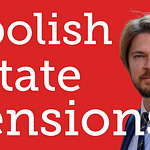In this Institute of Economic Affairs podcast, the IEA’s Head of Media Reem Ibrahim interviews Stan Veuger, Senior Fellow in Economic Policy Studies at the American Enterprise Institute. The conversation examines the dramatic shift in Trump's second-term trade policy, including unprecedented 25% tariffs on Canada and Mexico, the "reciprocal tariffs" announced in April affecting virtually every country globally, and the resulting economic turbulence that saw US GDP growth slow from 2.8% to just 1.2%. Veuger explains how these policies represent Trump's longstanding mercantilist worldview rather than strategic negotiating tactics, and discusses the ongoing legal challenges that could potentially overturn the tariff regime.
The discussion explores the macroeconomic consequences of both trade and immigration restrictions, with Veuger detailing how the administration has effectively reduced net migration to near zero through deportation efforts and eliminating legal pathways like humanitarian parole programs. He argues this represents a significant drag on economic growth, contributing to the broader slowdown alongside trade disruptions. The conversation covers which industries are most affected, from manufacturing sectors dependent on intermediate goods imports to service industries that rely on immigrant labor.
Veuger concludes by examining the political landscape around these policies, noting the limited Congressional appetite for challenging Trump's approach and why legal challenges may offer the best hope for rolling back protectionist measures. He discusses the fiscal implications of tariff revenue collection, the constitutional questions around executive power in trade policy, and offers his predictions for potential policy reversals under future administrations. The interview provides crucial insights into how economic nationalism is reshaping American trade and immigration policy with global implications.











